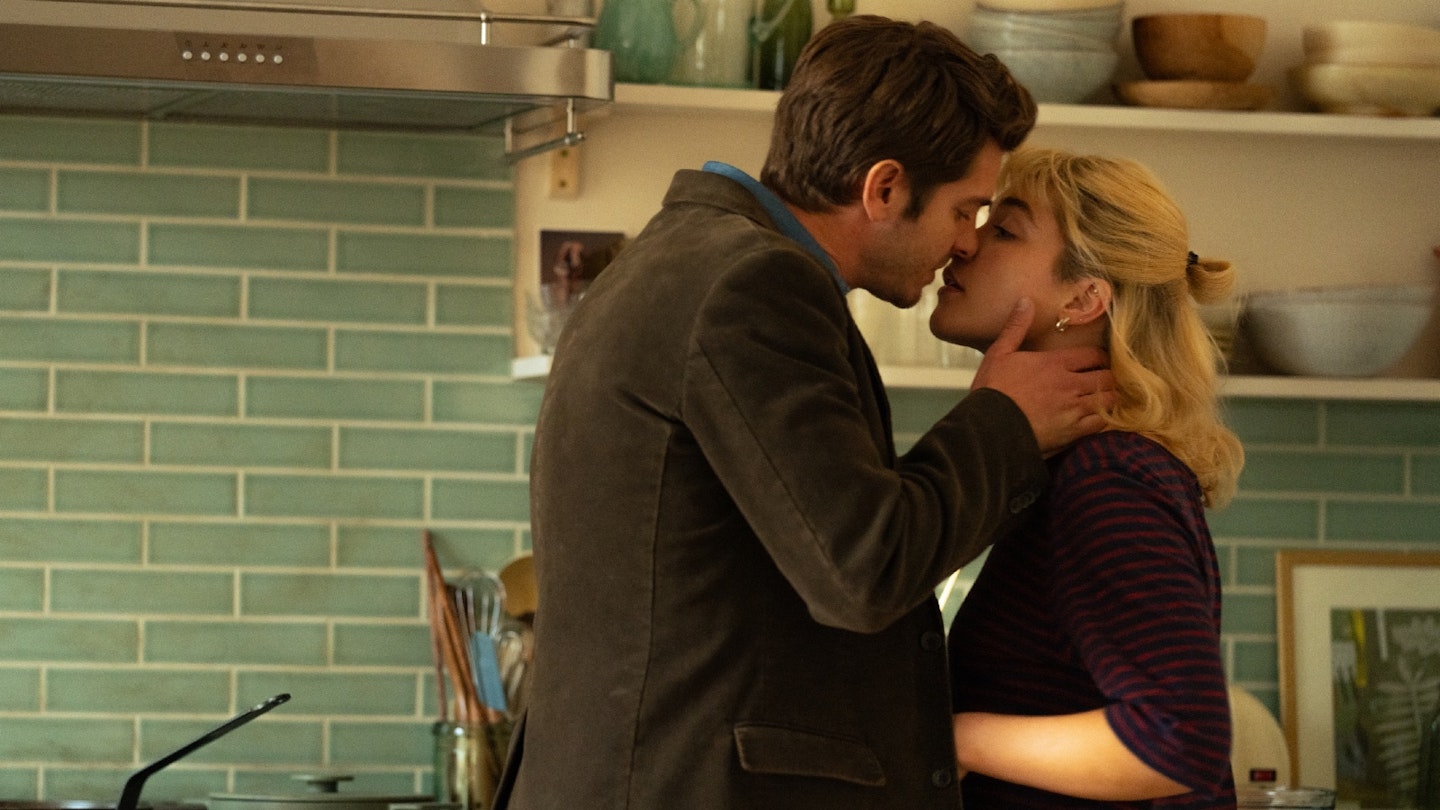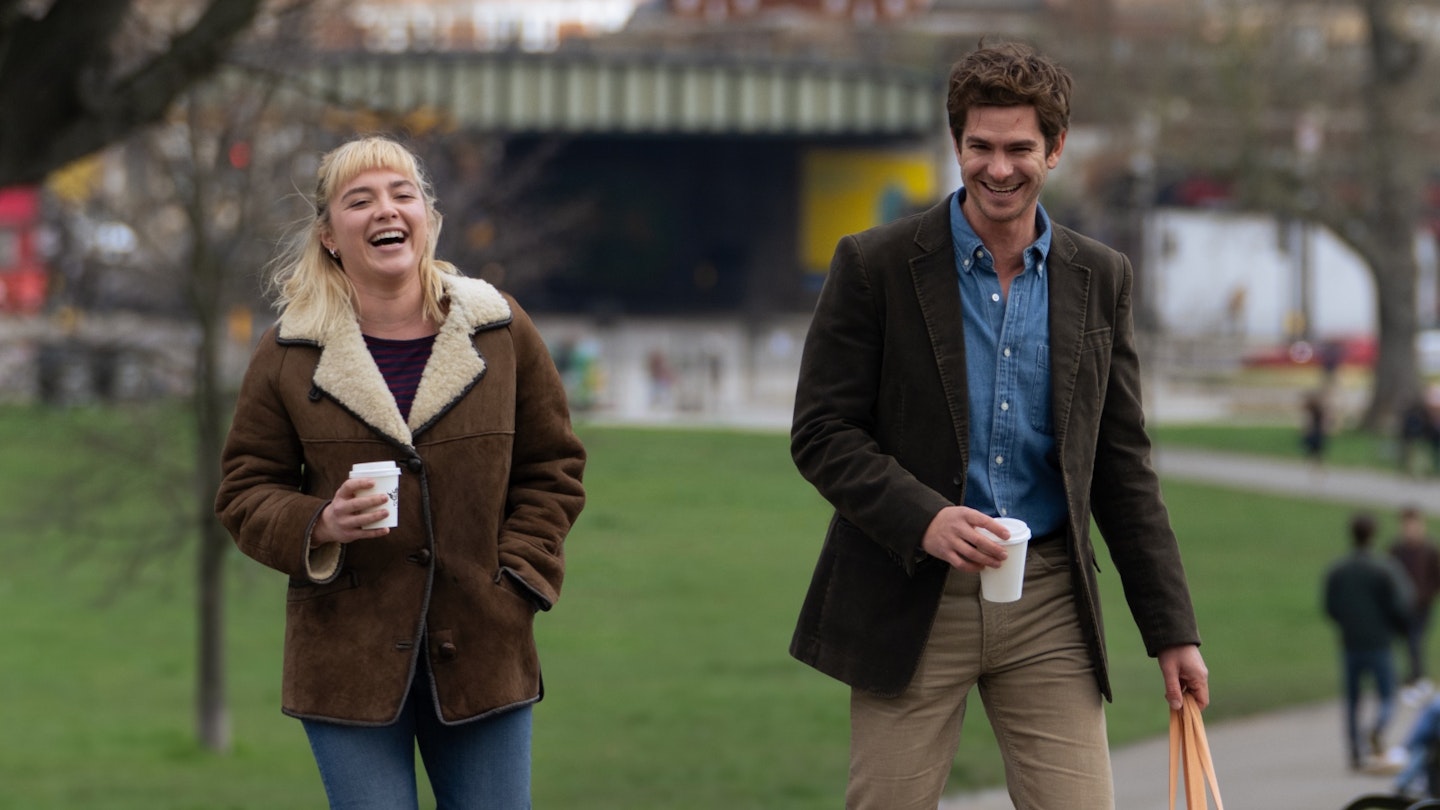Time may be a straight line, but memories hit you in random waves. Taken in that spirit, We Live In Time’s central gambit — to tell its love story out of chronological order — is more than just a stylistic flourish, the kind that would make Christopher Nolan proud. It’s an inspired choice that adds a layer of unpredictability to John Crowley’s weepy romcom. And thanks to a couple of powerhouse performances, its straightforward story packs a punch.

We’re a good 15 minutes into We Live In Time when we get the meet-cute between our winning couple, which sees acclaimed chef Almut (Florence Pugh) accidentally hit Weetabix middle-manager Tobias (Andrew Garfield) with her car. By then, we’ve already seen them mull over a second cancer diagnosis, as well as enjoy a lighthearted moment with Almut in the throes of pregnancy. We continue to jump back and forth in time, but we never lose our bearings. As the highs and lows of the relationship unfold and Crowley doles out happiness and despair in equal measure, it’s all fairly easy to follow, with Almut’s varying hairstyles, the size of her pregnant belly, or the presence of the couple’s daughter acting as helpful signposts.
Together, Pugh and Garfield are a force.
More important than the when is the what. Nick Payne’s screenplay delves into a myriad of relationship issues that are rich in their complications, from decision-making over having children, to living for the future versus living for the now, and more. The film is at its best when it marinates in those difficult conversations, its non-judgement of its characters allowing for decisions and moments that are as selfish as they are honest, real, and human.

All of this is elevated several levels by two of the best actors working today. Garfield — here reuniting with Crowley, his director on Boy A —is brilliant as the exceedingly average Tobias, equally adept at showcasing lighthearted humour and devastating, soul-crushing pain. But this is Pugh’s show, and she’s riveting and quietly moving as her Almut strives for career glory even while coming to terms with her mortality. Together, Pugh and Garfield are a force. With chemistry in abundance, their courtship is sweet, funny and awkward, each non-verbal communication of longing, sadness and hurt deeply felt. They’re easy to fall in love with.
The further we get into the story, the more the notion of legacy starts to rear its head. In one crucial scene, a frustrated Almut “doesn’t want to be remembered as somebody’s dead mum”. It’s a sequence that’s strikingly, devastatingly truthful. But it’s also a gateway to the film’s ultimate message — the small moments matter just as much, if not more so, than the grand gestures and big accomplishments. As rendered in We Live In Time’s bookends, it’s a takeaway that’s especially profound.
